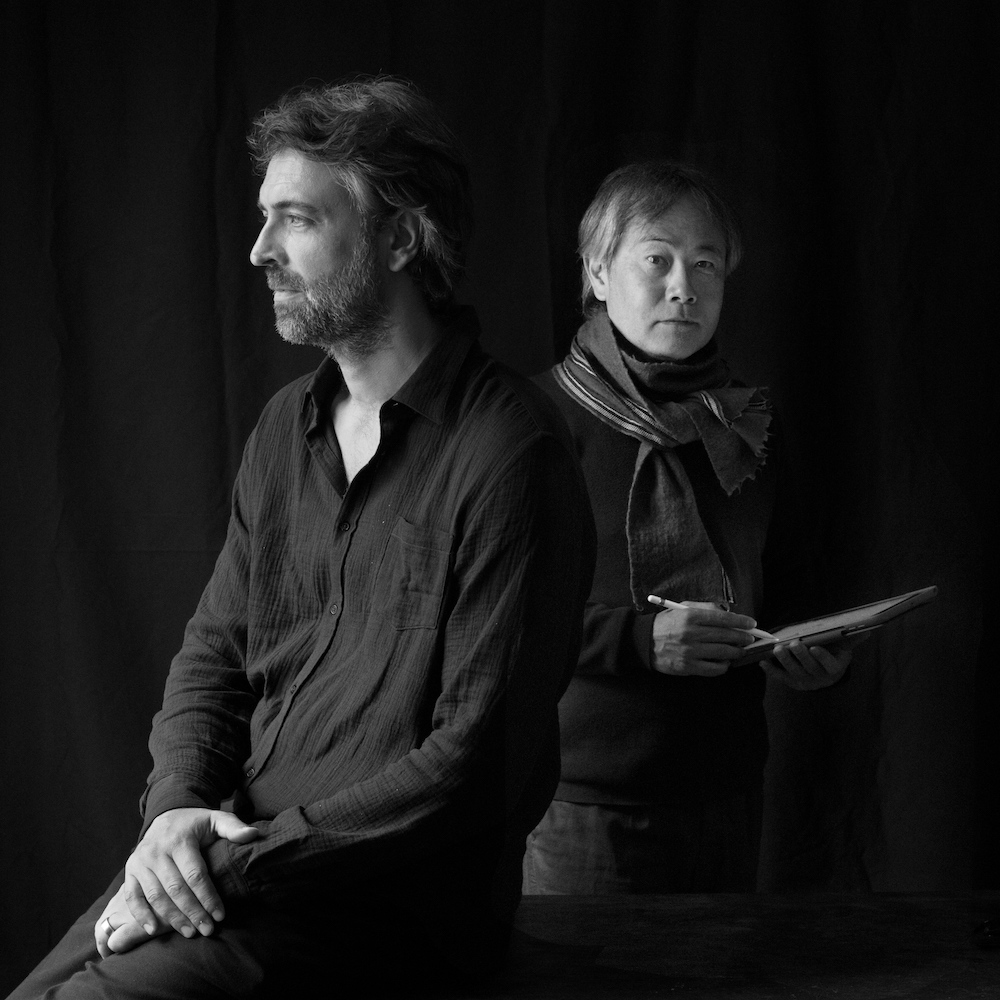RIYADH: Through a longstanding relationship with Asia, Stella Amae blends architecture and art, spanning from Europe to Asia, through the Middle East.
Founded in 2020 by Alexandre Stella and Ryuta Amae, the architecture firm bearing the same name is a symbol of exchange between the East and West.
Stella told Arab News: “Stella Amae is composed of two distant poles drawn together by a unique vision. France and Japan, architecture and fine arts, two cultures, two disciplines, distant yet complementary.”
Having worked as an architect in Asia for more than eight years, Stella forged connections with the continent. In France, his international career kept him in touch with Asian culture, working with Japanese agencies and later meeting Amae, his future business partner.
“We started working together when I was working for (Japanese architect) Sou Fujimoto. We worked in Asia, in France, but what united us was Saudi Arabia,” Stella said.

Stella Amae was founded in 2020 by Alexandre Stella, left, and Ryuta Amae. (Supplied)
Today, the architecture firm is working on ongoing megaprojects in Saudi Arabia, leisure schemes in NEOM, and resorts on Shusha Island in the Red Sea.
Stella Amae has also worked on urban sculptures such as the gates of Riyadh.
“This is where the artistic specificity of our agency can bring something more to urban space. It is not just architecture; we also intervene in the field of art.
“For Riyadh, we envisioned a grand gate with an optical effect that gives the idea of passage and access to the city,” Stella added.
Stella Amae focuses on large cities, but not exclusively. The agency also works on second-tier cities, villages, and natural contexts.
A project in Taif, in the Hijaz mountains, is an example of an initiative for rural development and agri-tourism.
Stella said: “It’s a very rich agricultural region. And we wanted tourism development to go hand in hand with ecological development and sustainable agriculture.
“It was a kind of route where you can explore the countryside and nature while simultaneously having a new rural and economic activity with the locals. All of this is connected to Saudi history and heritage.”
Stella Amae has established partnerships with agencies in France and several other countries, notably on neighborhood development projects such as Diriyah II, where they are working on mixed-use neighborhoods (residential, office, commercial), and on the mosque of Diriyah II.
“We have the feeling that something extraordinary is happening in Saudi Arabia. And naturally, as architects, we want to be part of it.
“Today, we are actively seeking to collaborate on projects with the new generation of Saudi architects. We are looking for this possibility of exchanges, and not just as a business prospect,” Stella added.
Participating in missions between France and Saudi Arabia, such as AFEX-Riyadh (French Architecture Days), strengthens the possibility of exchanges with local decision-makers and architects.
For two decades, the expertise of the agency’s co-founders has evolved in tandem with cultural and urban challenges around the world. Stella and Amae have channeled art and architecture so that their work serves as a vehicle for culture, something Stella described as “a very French way of practicing architecture.”
He said: “In France, buildings have often been collaborative efforts with sculptors, painters, and craftsmen. People who were in the fields of art and artisanry, and today we want to highlight this complementarity.”
In terms of expertise, the duo has worked on cultural projects in Asia, particularly in China, including buildings for museums dedicated to traditional Chinese painting, buildings for residents, and multifunctional theaters to animate neighborhoods.
In France, they have worked on projects in line with metropolitan development policies that have marked the last 20 years in the country.
“Urban policy has driven us to create innovative buildings that change the urban relationship by mixing functions — office, housing, and sports or buildings for the younger generations,” Stella said.
This is evident in their work on buildings where nature and communal spaces play a significant role.
Stella noted that the idea was to address issues related to the needs of the new generation — access to housing and the relationships that can be created in the city.
“For us, the development of the city experience is very important in our work,” he added.
One of the challenges in the industry is the number of projects produced compared to those that materialize, especially as some projects do not go through due to validation processes.
Stella Amae presents innovative architectural solutions, supported by experience in managing global projects.





























